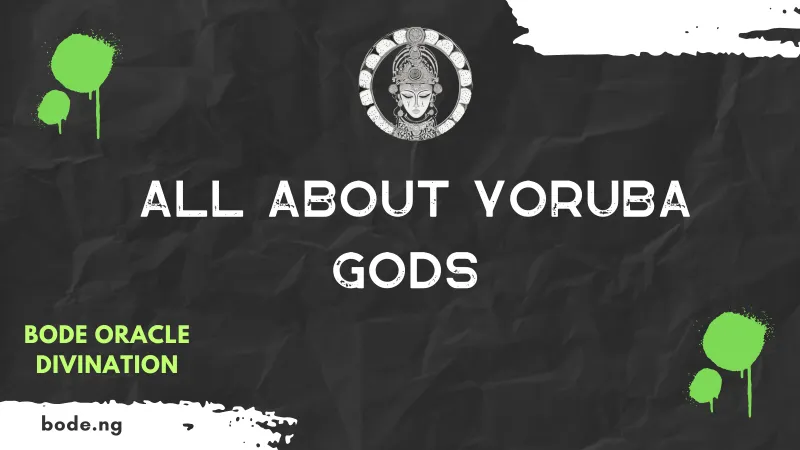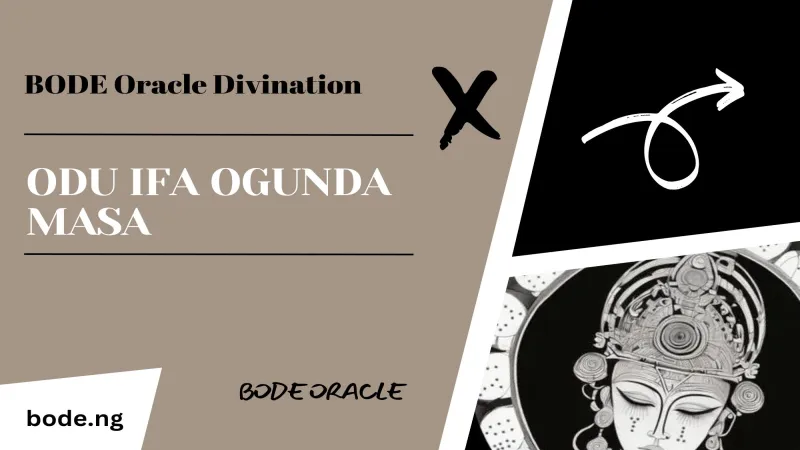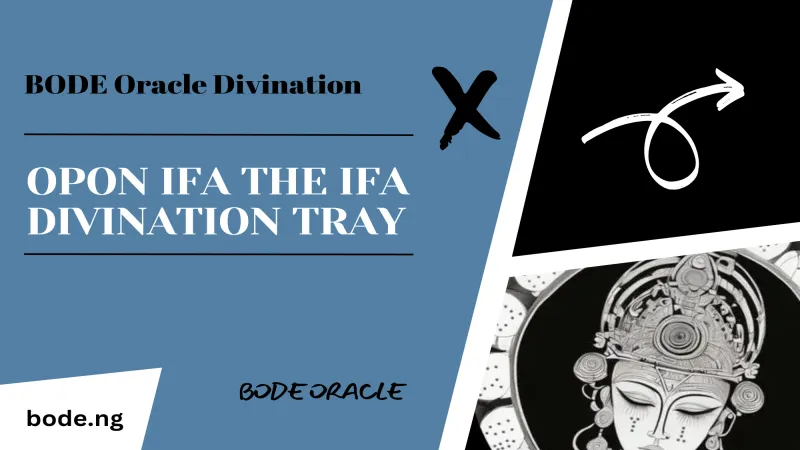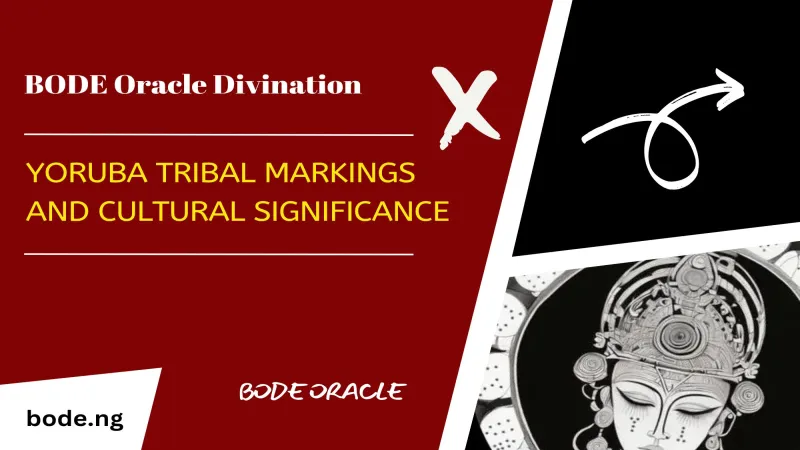A god or deity is considered a being of immense power, either natural or supernatural, regarded as holy, divine, or sacred in various religions.
Some belief systems recognize a single supreme deity, while others venerate multiple gods and goddesses. While the term "god" typically refers to male deities, "goddess" is used for their female counterparts.
Deities possess distinct attributes, traits, and roles. Some manifest through human forms, animals, objects, or even celestial bodies.
The Yoruba people have traditionally placed great emphasis on the worship of deities, rooted in their ancestral beliefs in divine protection, fertility, guidance, and triumph in warfare.
In Yoruba cosmology, the supreme being is Olódùmarè or Elédùmarè, also referred to as Elédùà. Olódùmarè is the ultimate source of creation, who governs all other deities, or Òrìṣàs, and the universe itself.
You Can Also Read More On
Brief History of Hermeneutics in Relation to Odu Ifa
Yoruba Male Gods (Àwọn Òrìṣà Òkùnrin)
1. Aganjú
Revered as a warrior king, Aganjú wields a sword as his staff and represents fire, strength, and resilience. Though sometimes misattributed to volcanoes in diasporic traditions, in Yoruba culture, he symbolizes fiery energy and courage.
2. Agemo
A divine chameleon and servant of Olórun (God of the heavens), Agemo embodies adaptability, transformation, and the bridge between mortals and divinity.
3. Ọbalúayé
Known as the orisha of the Earth, Ọbalúayé governs infectious diseases, healing, and the mysteries of life and death. He is associated with both suffering and compassion.
4. Erinlẹ̀
A skilled elephant hunter and physician, Erinlẹ̀ serves as a healer among the gods and is venerated for his expertise in herbal medicine.
5. Èṣù
The orisha of crossroads, duality, and beginnings, Èṣù oversees balance and communication. As a messenger between humans and the divine, he ensures that rituals reach their intended recipients.
6. Ìbejì
Representing vitality, youth, and joy, Ìbejì are twin orishas symbolizing the duality of life. They are considered bringers of blessings and good fortune.
7. Lógunẹ̀dẹ
A warrior and hunter, Lóguǹdẹ is celebrated for his bravery and his ties to both the forest and strategic warfare.
8. Ọbàtálá
Creator of human forms, Ọbàtálá is the orisha of light, purity, and moral uprightness. He is regarded as a symbol of wisdom and compassion.
9. Odùduwà
As the progenitor of the Yoruba people, Odùduwà is a foundational orisha tied to the creation of earth and Yoruba civilization.
10. Ògún
The orisha of iron, fire, hunting, agriculture, and war, Ògún epitomizes strength, creativity, and resilience in the face of adversity.
11. Okó
A deity of agriculture and hunting, Okó ensures bountiful harvests and prosperity for his worshippers.
12. Osanyin
The orisha of forests, herbs, and medicine, Osanyin is a master of healing and botanical knowledge.
13. Oṣùmàrè
A divine rainbow serpent, Oṣùmàrè represents creation, fertility, and continuity in life cycles.
14. Ọ̀ṣọ́ọ̀sì
The orisha of hunting, strategy, and the forest, Ọ̀ṣọ́ọ̀sì is also associated with wisdom and precision.
15. Ṣàngó
The orisha of thunder and lightning, Ṣàngó embodies power, justice, and leadership. He is a symbol of raw energy and charisma.
16. Akògún
Known as a warrior and hunter, Akògún is revered for his valor and association with traditional warrior regalia, often adorned in straw.
People Also Read
Opon Ifa The Ifa Divination Tray
Ifa Divination And How It Can Solve Your Problems
Yoruba Mythology Deities And Orisa
Yoruba Female Goddess (Àwọn Òrìà Obinrin)
1. Ajé
The orisha of wealth and economic prosperity, Ajé is invoked for financial success and abundance.
2. Yewa
Associated with the Yewa River, Yewa governs transformation and the boundaries between life and death.
3. Nàná Bùkùú
A deity of rivers and the earth, Nàná Bùkùú symbolizes nurturing and the interconnectedness of water and land.
4. Ọbà
The first wife of Ṣàngó, Ọbà is the orisha of domesticity and marriage, embodying loyalty and dedication.
5. Ọtìn
A hunter and wife of Erinl̀, Ọtìn is connected to the Otín River and is celebrated for her courage and skill.
6. Olókun
The orisha of the ocean, Olókun represents wealth, mysteries, and the depths of the unknown.
7. Ọ̀ṣun
As the orisha of love, beauty, intimacy, and wealth, Ọ̀ṣun presides over the ̀ṣun River and is a symbol of diplomacy and fertility.
8. Ọya
The orisha of the Niger River, Ọya is associated with wind, lightning, fertility, fire, and magic. Believed to be the child of bàtálá and Yemoja, she plays a vital role in fertility and creation.
Women seeking pregnancy often make sacrifices to Ọya along riverbanks, as she governs life’s transformative forces.
9. Yemọja
A mother goddess and the patron deity of women, Yemọja is connected to the Ogun River and symbolizes motherhood, protection, and nurturing.
10. Yemowo
The wife of Ọbàtálá, Yemowo is considered the archetype of many female orishas, including Yemoja, Ọ̀ṣun, and Yewa. She is associated with wisdom, purity, and the waters of life.
By delving deeper into the attributes of these deities, one can better understand the Yoruba people's profound connection to spirituality, nature, and cultural heritage.



